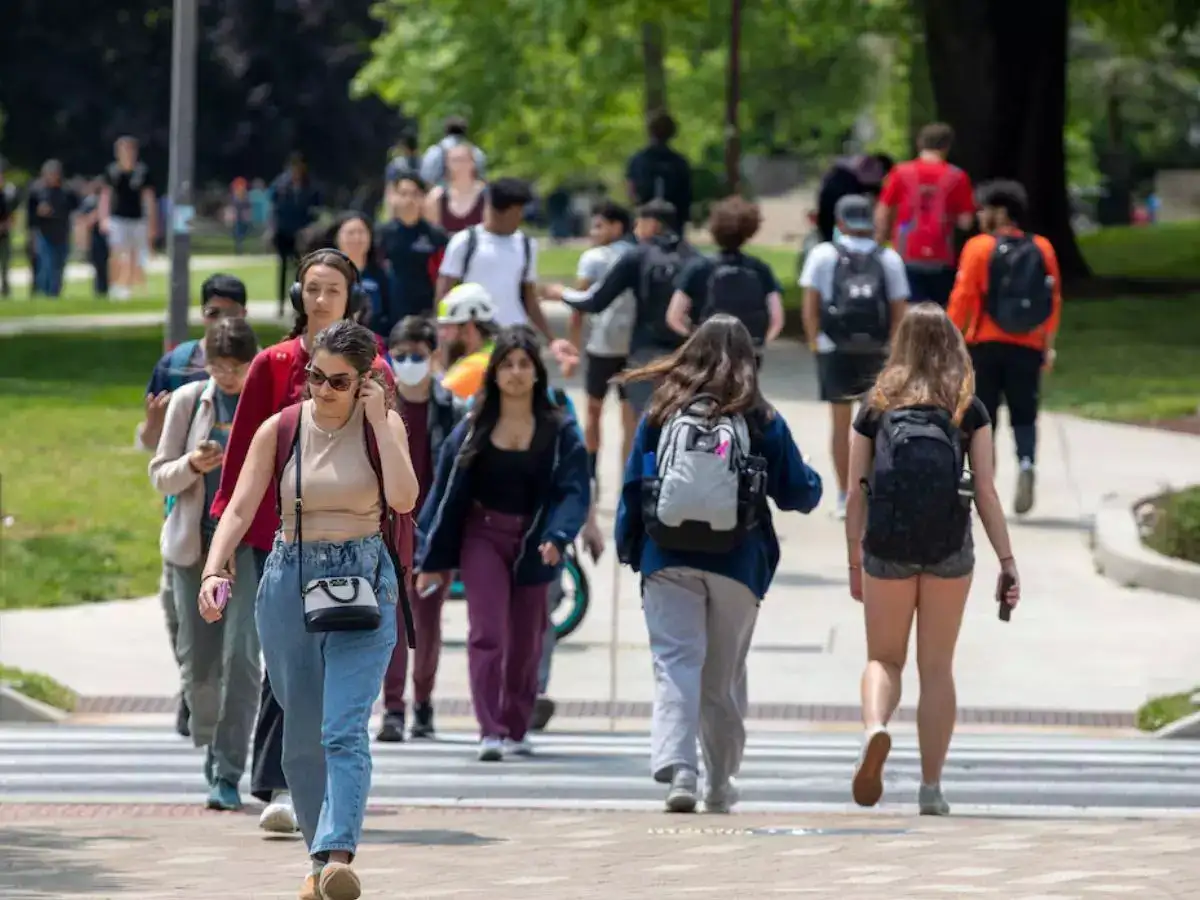
In recent years, the landscape of US immigration policy has undergone significant transformations, often driven by complex socio-political motives. One of the most concerning developments is the emerging pattern where the government appears to utilize *antisemitism settlements* as a tool to indirectly curb international student enrollment. While these settlements are ostensibly rooted in addressing genuine instances of discrimination and hate crimes, reports suggest they are increasingly being leveraged to target specific demographic groups, particularly those involved in educational exchanges. This covert strategy raises critical questions about the integrity of immigration policies and the broader implications for global educational collaboration.
The Concept of Immigration by Proxy
The term “immigration by proxy” has gained prominence in recent analyses of U.S. policy shifts. Essentially, it describes a tactic where authorities adopt measures targeting one issue—such as antisemitism settlements—which then have unintended or indirect effects on immigration patterns, notably the flow of international students. This approach can be viewed as a means of achieving policy goals—such as reducing foreign student numbers—without explicitly framing the strategy as such. Instead, it employs a series of interconnected policies and settlements that collectively create a less welcoming environment for certain foreign nationals.
Mechanisms of Policy Implementation
Utilization of Settlement Agreements
Settlement agreements related to antisemitic incidents often carry stipulations that extend beyond the immediate scope of the case. These include increased scrutiny of institutions, tighter visa regulations, and requirements for background checks that are both time-consuming and intrusive. Such measures, while aimed at combating hate crimes, are sometimes used to make the process of international student admission more arduous, thus discouraging foreign applicants.
Impact on International Educational Institutions
Several educational institutions abroad have reported increased difficulty in securing visas for their students. The ripple effect from settlement enforcement leads to:
- Enhanced vetting procedures that delay or deny visas.
- Higher scrutiny on the backgrounds and affiliations of prospective students.
- A broader climate of suspicion targeting international students—particularly those from regions with perceived higher risks of antisemitic incidents.
Strategic Benefits for Domestic Policy Goals
The use of antisemitism settlements as a strategic tool aligns with certain nationalist or protectionist objectives. By indirectly suppressing foreign student enrollment, policymakers can aim to:
- Reduce the influence of foreign-educated individuals in American academic and social spaces.
- Protect domestic students from perceived competition or cultural shifts.
- Address political narratives around immigration and national security.
This tactic essentially creates a *deterrent environment* for international students, who might otherwise view the U.S. as a welcoming destination for higher education, thus achieving a reduction in foreign enrollment without overt restrictive policies explicitly targeting students.
Controversies and Ethical Concerns
The strategy of using antisemitism settlements to influence immigration flows has sparked widespread criticism. Critics argue that this approach is:
- Unethical: It endorses a discriminatory lens, where policies are shaped not by educational or economic considerations but by xenophobic and biased motives.
- Counterproductive: It damages the reputation of the U.S. as a hub for international students, which could have long-term economic and diplomatic repercussions.
- Undermining international relations: Countries that perceive these tactics as unfair or discriminatory may retaliate, affecting diplomatic ties.
Furthermore, there are concerns about the fairness of targeting specific communities within both the U.S. and abroad, potentially marginalizing genuine victims of antisemitism while penalizing innocent students and institutions.
Broader Implications for Global Education
The impact of these policy shifts extends beyond immediate visa restrictions. They contribute to a climate of suspicion and apprehension among prospective international students, who may now question the safety and inclusivity of American campuses. This hesitance can lead to:
- Decline in international student numbers, affecting campus diversity and research excellence.
- Financial repercussions for universities relying on tuition from foreign students.
- Potential weakening of America’s global educational leadership.
In addition, other countries may follow suit, adopting similar strategies to control foreign student inflows, which could lead to a fragmented global educational ecosystem driven by political agendas rather than academic merit.
Conclusion: Towards a Transparent and Fair Policy Framework
The use of antisemitism settlements as yet another lever in shaping immigration policy underscores the need for transparency and fairness. While combating hate crimes and promoting safety are vital objectives, these efforts should not come at the expense of international educational collaboration and societal inclusiveness. Policymakers must balance security concerns with the fundamental principles of open and fair immigration practices, ensuring that measures are implemented without discrimination or covert motives.
As global mobility resumes its natural course post-pandemic, it is imperative that the U.S. re-evaluates its approach, fostering an environment that truly welcomes international students without the shadow of politically motivated restrictions. Only through such measures can the country maintain its status as a premier destination for global learning and cultural exchange.
For more updated news please keep visiting Prime News World.








